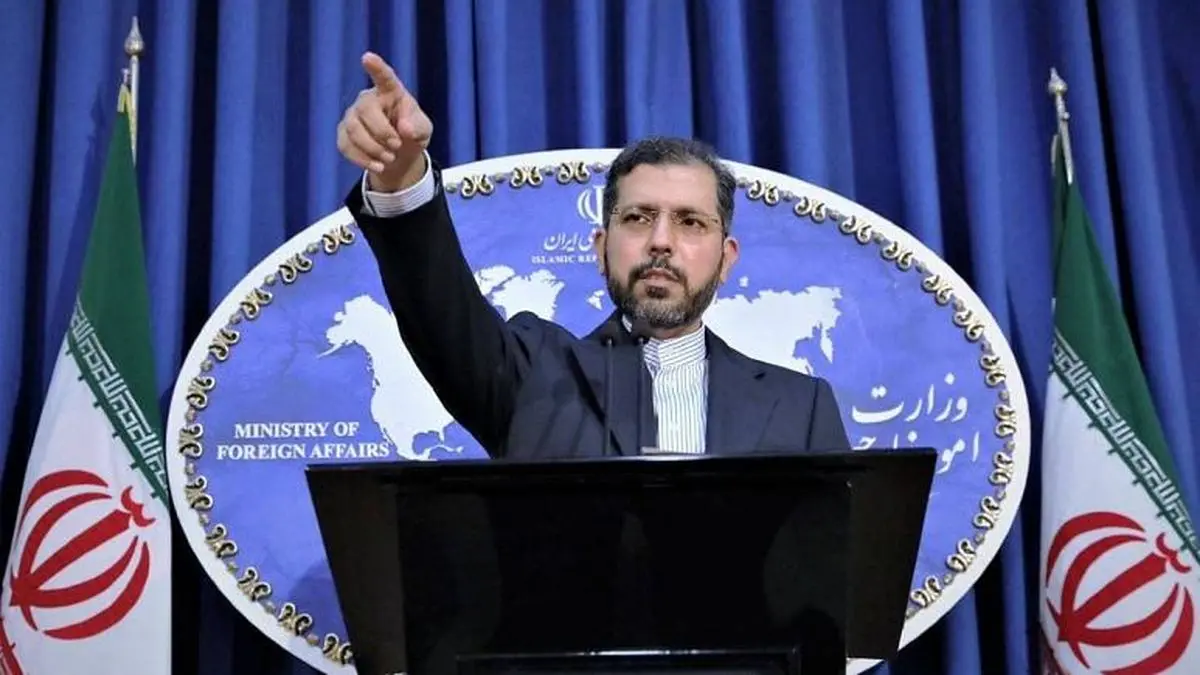FM Spox: IAEA report does not reflect realities on negotiations with Iran

Iranian Foreign Ministry Spokesman Saeed Khatibzadeh said: ”Unfortunately, this report does not reflect the reality of the Iran-IAEA talks.”
Khatibzadeh made the remarks addressing his press conference on Tuesday:
Regarding the recent report of the Director General of the International Atomic Energy Agency, he said: ”Unfortunately, this report does not reflect the reality of the Iran-IAEA talks.”
After the agreement made between Iran and the IAEA in Tehran, Iran wrote responses to the IAEA, and several rounds of face-to-face meetings were held to provide technical responses and documentation from Iran.
Unfortunately, what is evident in this report is nothing new, and it is what Grossi had announced in the European Parliament before the third round of talks between Iran and the IAEA.
The report is not fair and balanced, and it is feared that pressure from the Zionists and some activists has shifted the IAEA’s usual reporting route from the technical to the political atmosphere.
Regarding Iran’s recent diplomatic activities, Khatibzadeh said the government's foreign policy in the field of neighborliness has been pursued with special focus in the past few months, and the fruits of these movements are seen and arranged at different levels in senior officials’ visits.
During the Iranian President’s important visit to Oman, an area of cooperation was discussed that had been delayed for years.
Some 13 documents were signed during the trip, he said adding that there were very good agreements in the fields of transportation and transit, energy and trade, and investment.
In the field of economic relations, many projects and initiatives have become binding documents, and we hope for developing relations with Oman.
Yesterday, following the intensive planning of the Tajik President's visit, we had excellent meetings, and 17 documents were signed between the two countries in various fields.
Reacting to the remarks made by United States Special Representative for Iran Robert Malley, Khatibzadeh said: “Basically, in the Vienna Talks, our action is quite clear and we do not react to remarks made with internal consumption.”
The pause in negotiations is due to the unresponsiveness of the initiatives taken by Iran and Europe, and we have to see when the United States wants to announce its decision.
Commenting on the continuation of negotiations with Saudi Arabia, Khatibzadeh said: “the exact time for the sixth round of talks with Saudi Arabia is not clear.”
Regarding the removal of the IRGC from the sanctions list, he said: “What is said about design in the American and Western media is an old tactic and not a new one.”
What is being negotiated between Iran and the United States are issues related to Iran's economic interests and removing all components of US maximum pressure.
Touching upon seizing Greek tankers in the Persian Gulf, he advised the Greek government to take legal action and hire a lawyer instead of making a fuss.
The ship's crew are in good condition and have a phone call with their families and there is no need to worry about them, he stated.
They should pay attention to the fact that the United States is not in favor of Iran-Greece relations.
Our relationship is respectful and should continue in this context.
